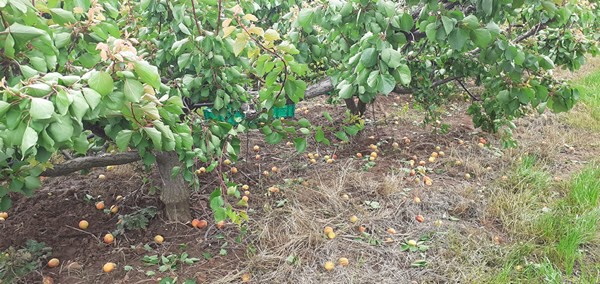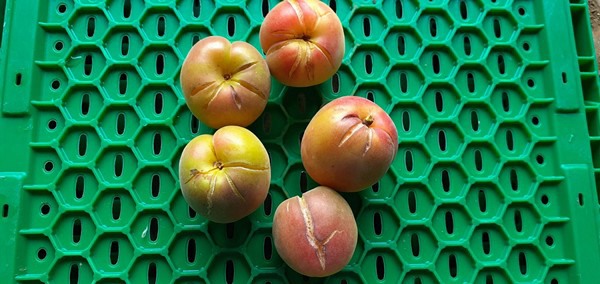When the rain comes down in buckets and at the wrong time, much of an entire year's work can be lost just like that. It happened to Adriano Vena, a grower from Montalbano Jonico, a village in the southern Italian province of Matera.

"I was hoping for a good season, not only because we escaped late frosts, but also because there was a lot of right-sized fruit hanging on the trees. But now much of my 10 acres of apricots have been damaged by the rain. You can see the fruit tearing and I will have to destroy up to 70% of the early varieties. The Mogador apricot suffered the worst from the rain. This year we won't harvest more than 15 tons from it. But I am already seeing some problems with the later varieties as well. From Flopria and Rubista I think I will lose 10%. Nevertheless, I have applied preventive fertigation and calcium-based foliar fertilization to obtain more consistent fruit that will last longer on the tree and have a better shelf life after the harvest."

The grower estimates the economic damage so far at about €40,000. "I have no insurance. I'm hoping for help from the local government. Right now, I am picking as much fruit as I can, obviously only the apricots that are suitable for the market and that are showing the right degree of ripeness. I signed a contract with a trader only a few days ago for the purchase of all my production. Unfortunately, the weather had some not so nice surprises in store. We are now hoping for a good harvest of the medium-late varieties."










